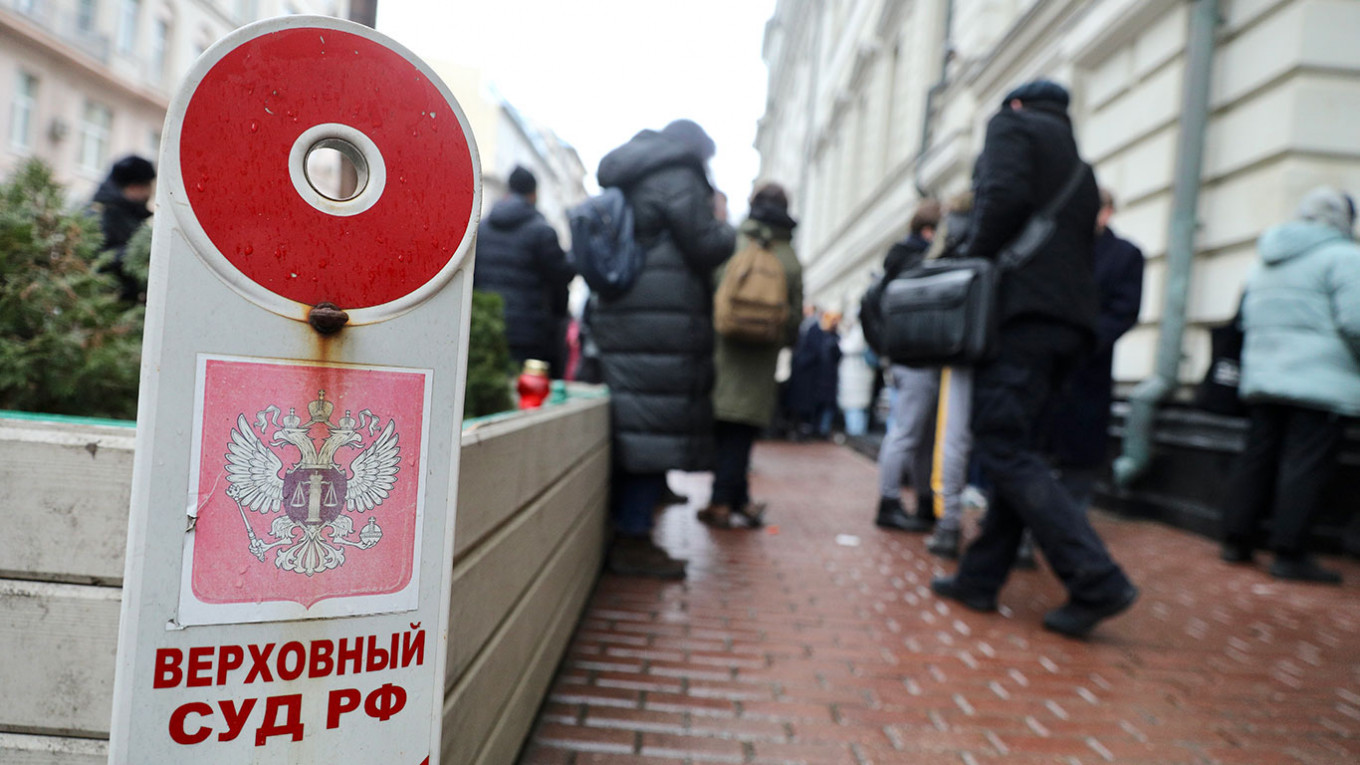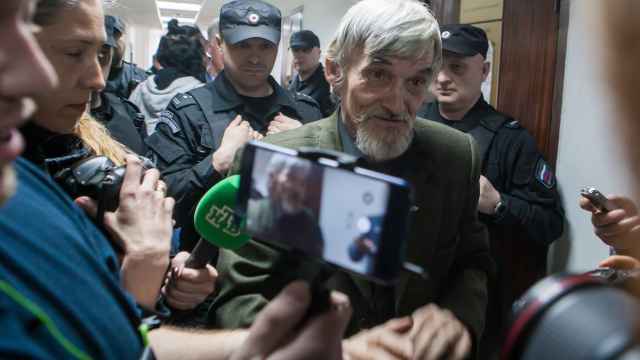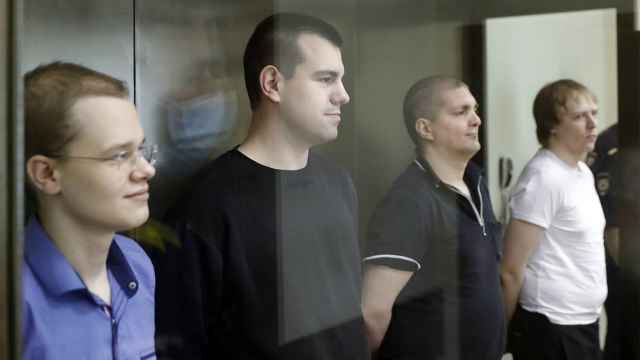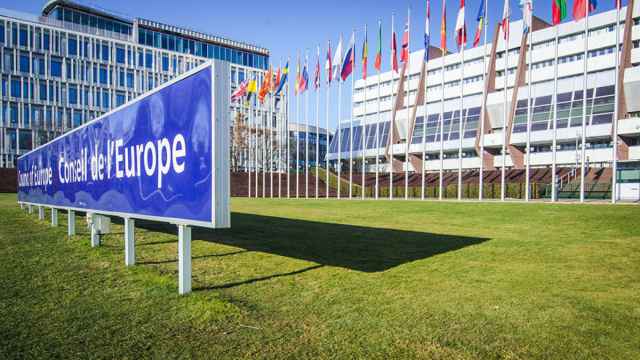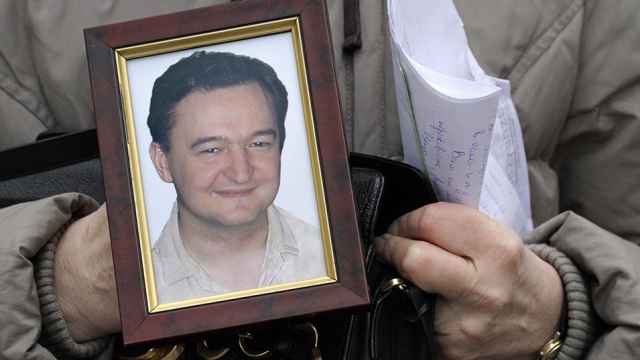Defenders of Russia's most prominent rights group Memorial urged the Supreme Court on Thursday to dismiss a case to shut it down, saying the move would mark a dark day for the country.
In court for alleged violations of its designation as a "foreign agent," Memorial is facing its biggest threat since being founded by Soviet dissidents including Nobel Peace Prize laureate Andrei Sakharov in 1989.
A pillar of Russian civil society, Memorial has built up a huge archive of Soviet-era crimes and campaigned tirelessly for human rights in Russia.
Prosecutors have asked the Supreme Court to dissolve Memorial International, the group's central structure, for alleged failures to use a "foreign agent" label as required under a controversial law regulating groups that receive funding from abroad.
The move has sparked widespread outrage, with supporters saying the shuttering of Memorial would signal the end of an era in Russia's post-Soviet democratization.
It comes in a year that has seen an unprecedented crackdown on opponents of President Vladimir Putin, including the jailing of chief Kremlin critic Alexei Navalny and the banning of his organizations.
'Insult to millions'
During the hearing, which lasted for several hours before being adjourned until Dec. 14, prosecutors accused Memorial of "systematically" failing to use the foreign agent label and of trying to hide its status.
Memorial's lawyers and founders denied this, saying its material was properly marked and that only an insignificant number of documents may have been missing the label.
"We are talking about the liquidation of an organization that helps people... an organisation that preserves our shared memory," one its co-founders Yelena Zhemkova told the court.
"You cannot close such an organization on technicalities."
Outside the court, more than 200 people gathered on a cold Moscow day to support the group.
Maria Krechetova, a 48-year-old philosophy teacher, said shutting Memorial would be an "insult to the millions" of those who suffered under the repressive Soviet regime.
"Banning Memorial would deal a final blow to the idea that a person means something (in Russia), and that their rights mean something," she said.
"Memorial plays a huge role in our country. This organization, above all, studies history, repressions," said 18-year-old Arina Vakhrushkina.
"It is a page in our history the authorities are trying to turn and forget about, they only want to be proud of our victories."
More than 100,000 people have signed an online petition asking for the case to be dropped.
Two cases
Thursday's hearing was in one of two cases brought this month against the group and is being heard by the Supreme Court because Memorial International is registered as an international body. The ruling will not be open to appeal in a Russian court.
The other case, against the Memorial Human Rights Center, began in a Moscow court on Tuesday and will continue later this month.
It is also accused of violating the "foreign agent" law and is facing another charge of defending "extremist and terrorist activities" for publishing lists of imprisoned members of banned political or religious movements.
Memorial has spent decades cataloguing atrocities committed in the Soviet Union, especially in the notorious network of prison camps, the Gulag.
It has also campaigned for the rights of political prisoners, migrants and other marginalized groups, and highlighted abuses especially in the turbulent North Caucasus region that includes Chechnya.
It is a loose structure of locally registered organizations, but the dissolving of its central structure could have a major impact on operations.
Memorial International maintains the group's extensive archives in Moscow and coordinates dozens of Memorial-linked NGOs in and outside of Russia.
Memorial International board member Oleg Orlov told AFP the move would "greatly" complicate the work of the NGO by depriving it of a legal basis to pay employees, receive funds or store archives.
UN officials, the Council of Europe, international rights groups and Western governments have all warned against the group being disbanded.
A Message from The Moscow Times:
Dear readers,
We are facing unprecedented challenges. Russia's Prosecutor General's Office has designated The Moscow Times as an "undesirable" organization, criminalizing our work and putting our staff at risk of prosecution. This follows our earlier unjust labeling as a "foreign agent."
These actions are direct attempts to silence independent journalism in Russia. The authorities claim our work "discredits the decisions of the Russian leadership." We see things differently: we strive to provide accurate, unbiased reporting on Russia.
We, the journalists of The Moscow Times, refuse to be silenced. But to continue our work, we need your help.
Your support, no matter how small, makes a world of difference. If you can, please support us monthly starting from just $2. It's quick to set up, and every contribution makes a significant impact.
By supporting The Moscow Times, you're defending open, independent journalism in the face of repression. Thank you for standing with us.
Remind me later.


